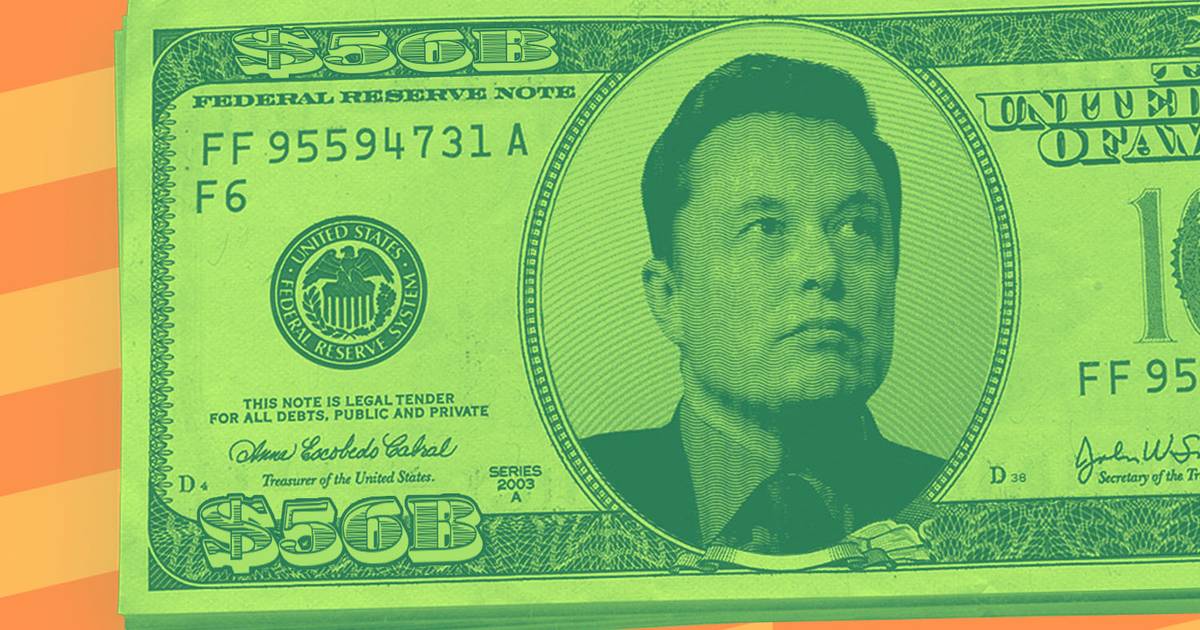
A letter to Tesla shareholders signed by Chairperson Robyn Denholm sought to drum up votes in favor of restoring a $56 billion pay package granted to CEO Elon Musk in 2018. That compensation package was recently rescinded by a Delaware judge, who argued Musk was overpaid. Now, Tesla is asking shareholders to restore it at the EV company’s annual meeting on June 13.
The vote on Musk’s pay highlights an extreme example of the growing disparity between what CEOs earn compared to the average US worker. This imbalance has fueled scrutiny of executive compensation plans, with direct implications for the HR managers designing them.
Why Musk’s pay package was voided. In 2018, Tesla shareholders approved a pay package promising Musk stock options that would vest on the condition the company met certain targets, such as reaching a $100 billion market valuation, and either $20 billion in revenue or $1.5 billion EBITDA. Tesla met these goals within five years, which brought the value of Musk’s compensation up to an estimated $56 billion.
But some investors took issue with the package and sued; on Jan. 30, Delaware judge Kathaleen McCormick issued a decision siding with the plaintiffs. In an opinion, McCormick ruled the pay package was unfair, arguing that Musk held close ties with key directors involved in its design, and shareholders were not fully informed of the realities of the situation.
“The process leading to the approval of Musk’s compensation plan was deeply flawed. Musk had extensive ties with the persons tasked with negotiating on Tesla’s behalf,” McCormick wrote, noting Musk had long-standing relationships with two members of the compensation committee, including at least one who vacationed with Musk
Musk’s defense attorney described the pay package as “high-risk, high-reward,” and argued it benefited both Tesla’s CEO and shareholders.
Quick-to-read HR news & insights
From recruiting and retention to company culture and the latest in HR tech, HR Brew delivers up-to-date industry news and tips to help HR pros stay nimble in today’s fast-changing business environment.
Since the compensation package was rescinded in January, Tesla has urged shareholders to restore it in ads taken out on X, the social media platform Musk owns, according to an SEC filing. Board chair Robyn Denholm has been working to persuade shareholders and proxy advisors to vote in favor of Musk’s pay package ahead of the June vote, the Wall Street Journal reported.
Zoom out. While many US CEOs reap rewards to the tune of millions of dollars, the compensation package that was approved for Musk was exceptional: In her opinion, McCormick described it as “the largest potential compensation plan in the history of public markets.”
Still, it highlights a challenge many HR leaders are likely to face when designing executive compensation plans today, regardless of whether Elon Musk is running their company. HR pros are typically responsible for informing management of the “benefits, costs, and array of options” for these programs, according to the Society for Human Resource Management, as well as getting ahead of perceptions employees might have that their executives are being paid at unfairly high levels.
Jeremy Naranjo, an Austin-based solar developer at Solar One, illustrated how this perception might play out at Tesla, which has recently laid-off workers. “OK…more than the profit in the entire history of the company….50 times the money saved by layoffs,” Naranjo wrote of the $56 billion package on LinkedIn. “Could have kept employees for 50 years for this lump sum.”
As layoffs surged in the tech industry last year, some companies, like Apple, Google, and Amazon, docked their CEOs’ pay. Such pay cuts could help “preserve quite a few jobs,” Amy Spurling, founder and CEO of perk stipend platform Compt, told HR Brew.
